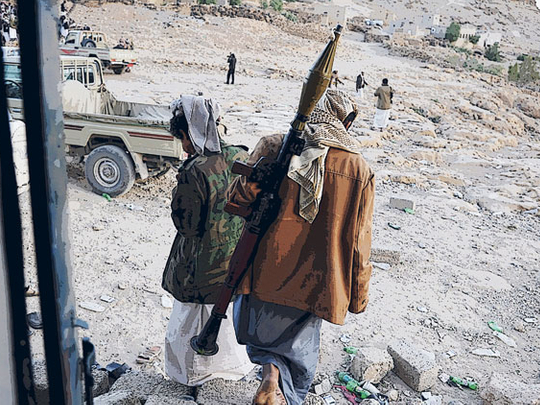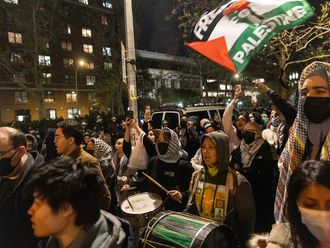
Yemen may never have made it into the news if it were not for the confession of would-be terrorist Umar Farouk Abdul Mutallab that he received training in the lawless tribal areas of the country.
Although the poor Arab state made it into the headlines of major global media, the sudden interest in Yemen did not address the real problems that led to Al Qaida's presence there. Mostly, they talked about the need for bold retaliatory action in the form of air strikes and support for Sana‘a to crush the terrorists.
It is feared that this failed terror plot will lead to retaliation that could result in more civilian casualties in Yemen. Just a few weeks ago, many Yemenis were angered and dismayed by the air strikes on Abyan in which several civilians, including women and children, were killed. The attack was allegedly carried out by US drones, or at least with some logistical support from the US, and was aimed at key Al Qaida elements in the south of Yemen. Though the reasoning is correct, the approach, I believe, is wrong.
The US is repeating the same mistakes it made in Afghanistan; killing civilians under the pretext of fighting Al Qaida. Though some suspected terrorists may be killed, many more are inspired to seek revenge against the US. With every attack it carries out, the US creates a more negative impression of itself in the minds of Yemenis.
Retaliatory attacks create the right environment for radical elements to be lured to join Al Qaida to attack US interests within and outside the country. If we could only learn from history, we would see why the insurgency in Afghanistan has been growing every year since Operation Enduring Freedom started in 2001.
Contributing factors
If we examine Al Qaida's presence in Yemen, we can easily identify some of the factors that have helped to boost the organisation's ability to work effectively and gain a strong foothold in the country.
Among these are a weak central government infested with corruption and inefficiency and led by a president who has remained in power for more than three decades, a high level of illiteracy in a conservative society where the invitation to join an extremist group is quite appealing, crushing poverty that has only gone from bad to worse in recent years, a collapsing economy that is heavily reliant on dwindling natural resources, a disappearing sense of security with the judiciary unable to protect democracy or free speech and failing to hold powerful individuals accountable for crimes they have committed against civilians, depleting water sources, a war against the Al Houthis in the north and a growing secessionist movement in the south.
It has been concluded many times in recent years that if the status quo continues, Yemen is destined to become a failed state just like Somalia, if not worse. Even if all Al Qaida's operatives are killed by a series of air strikes and other operations against them, in a failed state it is only a matter of time before they regroup and pose an even greater threat.
If we are to end Al Qaida's presence in Yemen, we cannot overlook the reasons why they flourished in the country. Hence, we cannot allow Yemen to crumble and turn into a failed state.
It dismays me to see that many US programmes airing information about Yemen and its Al Qaida links never mention any of the country's enormous economic, environmental, social and political problems.
It is also disturbing to realise that the Gulf region has been watching Yemen slowly and steadily failing without taking any tangible actions, as if pretending that its problems are its alone.
In fact, some countries may have worsened the situation. An example is Saudi Arabia, which in many ways has acted to weaken Yemen's central government. Such acts have created greater dependencies on Yemen's oil-rich neighbour and lessened respect for the government, which in turn has resulted in more lawlessness across the country. These are the ingredients for a failed state on the Arabian Peninsula; a nightmare that will haunt the region for decades.
The Arab League is guilty by association as it has remained a spectator, repeatedly emphasising the need to respect Yemen's sovereignty and not meddle in its domestic affairs. Well, today, we see the results of such deafening silence and we will yet see the country become a failed state if the inaction continues.
Long-term reform
Though the US and others can continue working with the Yemeni government to track down Al Qaida elements, they ought to work harder to save the country from collapse by meeting with all the stakeholders and brokering deals to tackle the inner conflicts, end the war in the north and address the grievances of people in the south. There must also be a long-term reform programme to heal the country and reverse the course from deterioration to progress.
I strongly believe that saving Yemen from collapse is what is urgently needed and ought to be tackled without isolating Al Qaida from all the other problems the country faces. There is simply no other option, because another failed state located opposite Somalia would gravely endanger the region and the world.
Walid Al Saqaf is the administrator of YemenPortal.net and a Phd candidate at Örebro University in Sweden.











